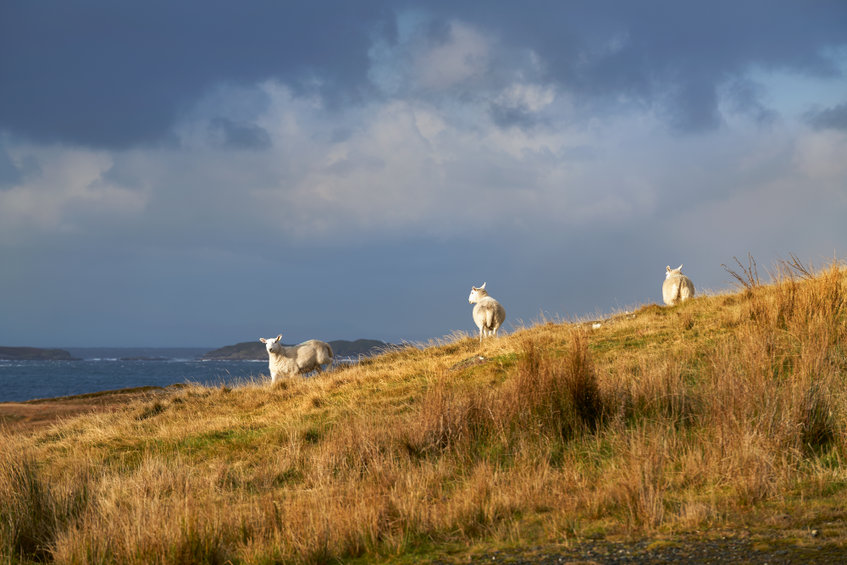
The potential threats of Brexit to Scottish farmers continue to 'vastly outweigh' the potential opportunities, NFU Scotland has warned one year on from UK withdrawal.
Farmers in Scotland are seeing significant issues following Brexit, including asymmetric trade, the labour crisis, Northern Ireland protocol and a ban on seed potatoes.
NFU Scotland called on the UK government to address the 'many Brexit unknowns' facing the country's farming industry.
It is pressing Westminster to introduce border control inspections on EU produce entering the UK that are in line with the requirements that UK exporters have to meet.
Meanwhile, the union said the Northern Ireland Protocol was also damaging trade between Scotland and Northern Ireland.
The need to address the impact of labour shortages across the whole food and drink chain - 'exacerbated by Brexit' - is also a priority for the industry.
And after a year of UK exit from the EU, Scotland’s high value seed potatoes remain locked out of valuable European markets.
NFU Scotland’s director of policy, Jonnie Hall said that trade with the bloc in the first 12 months of Brexit had been 'far from smooth'.
"The friction at border controls for Scottish producers exporting to the EU has been compounded by UK government continuing to grant ‘grace periods’ to imports from the EU from similar controls.
"That asymmetric trade remains ongoing and is a damaging consequence of the UK’s lack of practical preparation for Brexit."
He said that issues around specific products, such as seed potatoes, and specific issues such as the NI Protocol had created a 'potentially damaging' trade environment.
Farming groups warn that Brexit has created production, harvesting and supply chain issues across other sectors because of permanent and seasonal labour constraints.
For example, meat sector processing challenges around staffing levels, felt most acutely by those in the pork industry, remain very fragile.
And for the dairy, pig and poultry sectors, finding permanent staff has become increasingly difficultfollowing the UK's departure from the EU.
Mr Hall said the Seasonal Workers Pilot introduced by the UK government earlier this year was 'late and inadequate'.
"[It] has left many growers in Scotland re-thinking the risks around investing in high-value fruit and veg plants," he added.
The horticultural sector punches above its weight in Scottish agriculture, accounting for only one percent of its land area but 16 percent of its agricultural output.
Access to seasonal labour in the field and in processing is key and growers will be looking for a worker scheme in 2022 that goes beyond the 30,000 visas offered this year.
Closer to home, Mr Hall said the full implications of the UK Internal Market Act and the UK Subsidy Control Bill were "yet to be realised in terms of just how level the UK’s single market will be".
"Trade with other parts of the UK remains the most important outlet for Scottish produce by far," Mr Hall explained.
Beyond the EU, he warned that the free trade agreements with Australia and New Zealand had 'cast a very dark shadow' over UK and Scottish agriculture.
"While the full implications maybe a few years off, the so-called ‘safeguards’ for domestic producers will provide little or no protection."
Mr Hall added: “It remains disappointing that, as we go into 2022, there remains so many Brexit unknowns.
"As things stand, the potential threats to Scottish agriculture continue to vastly outweigh the potential opportunities."
